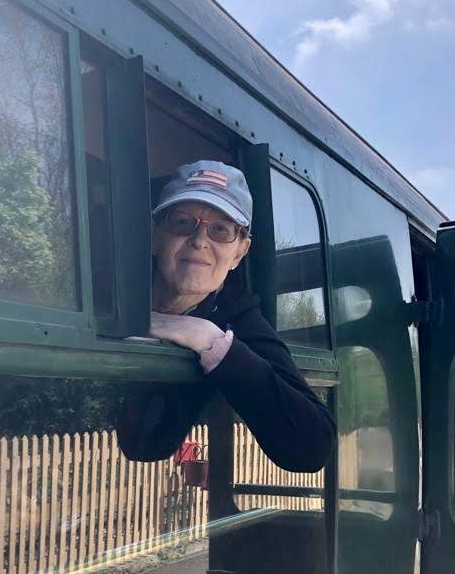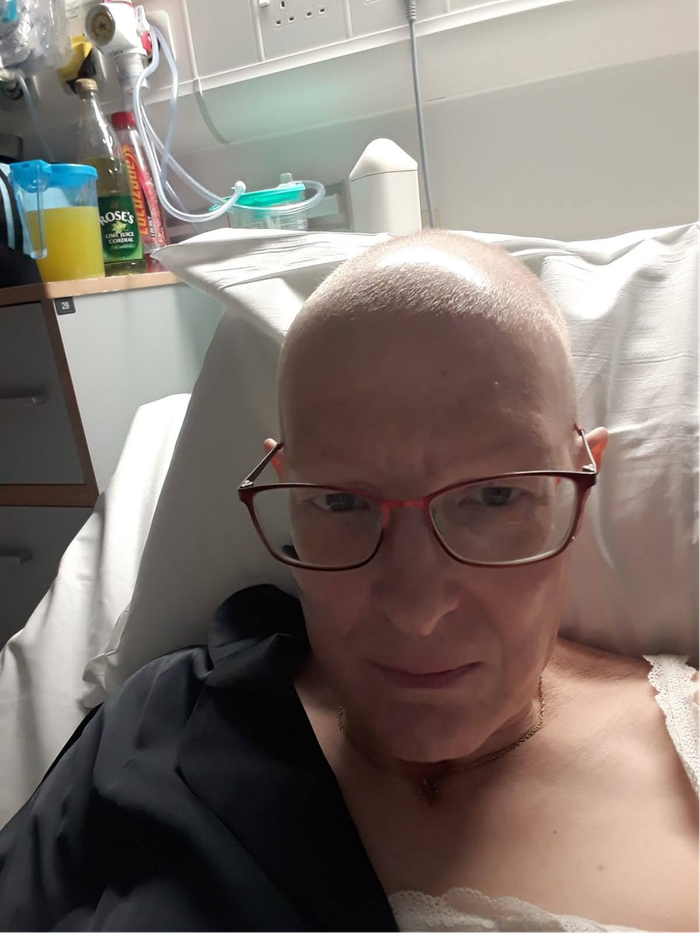Living with mental health conditions and blood cancer
Becky describes her journey with bipolar disorder, anxiety and mantle cell lymphoma, and how she looked after her mental health during and after treatment.

I think my mental health problems first started in childhood. I had lots of ups and downs over the years, but it wasn’t until my early twenties that I realised I needed to seek help.
My GP prescribed an anti-depressant, but six years later the medication just wasn’t working for me anymore. I was getting lower and lower, and I was scared about what might happen.
Getting a diagnosis of bipolar disorder
This time the GP referred me to my local mental health team. I saw a lovely psychiatrist and she diagnosed me with bipolar type 2. It means I have episodes of depression, where I feel really low, and episodes of hypomania. These aren’t as extreme as the manic episodes you can get in other types of bipolar. But when they happen my mind races all the time and I can’t switch off. I also have chronic anxiety.
The diagnosis was such a relief, as it explained the way I’d been feeling all my life and the social difficulties I’d had. It wasn’t just me; it was a mental illness! The psychiatrist put me on some new medication which worked much better, and I also had several years of therapy with an amazing psychotherapist.
Finding out I had blood cancer
In February 2016 I was diagnosed with a type of non-Hodgkin lymphoma called mantle cell lymphoma, after finding a lump in the side of my breast. I was told it was slow growing, so I went on watch and wait for five and a half years. I’d have a check-up every few months, but then COVID hit in 2020 and the appointments had to be over the phone.
In June 2021 the hospital called me in for a PET scan. The scan showed the cancer had spread, so it was time to start treatment.
My treatment was six cycles of chemotherapy followed by a stem cell transplant using my own stem cells. The thing I found most challenging for my mental health was having to stay in hospital. Up until this point I’d never had to stay in a hospital overnight, so I felt really anxious about it. Because of COVID restrictions I couldn’t have any visitors, so I was all alone.
My local hospital doesn’t do transplants, so I was sent to St Barts hospital in London. In January 2022 I went in for my stem cell transplant. I was going in for three weeks, the longest I’d ever been apart from my husband since we got married in 1989. He’d WhatsApp me and we’d talk on the phone every evening, but it was really hard being away from him.

Becky in hospital for her stem cell transplant.
Talking to my medical team about my mental health
My mental health conditions are on my medical records, but I also talked to my consultant about them as soon as I was diagnosed with lymphoma. He was really understanding, and he also communicated with the team in London about my mental health. I think that was why they put in a room with a big window when I went in for my transplant. Natural light is really important to me.
Managing my medication during and after the stem cell transplant
One symptom of the bipolar is insomnia, so I’ve been taking sleeping tablets for years. I had to come off them for the stem cell transplant because they could affect my neutrophil levels. That was really, really hard. I think for the first seven to eight days in hospital I didn’t sleep properly.
Luckily, I didn’t have to stop my bipolar medication, but they did need to lower the dose for the stem cell transplant.
It has been a struggle getting the dose right again since the transplant. I went back to my GP several times, and they just kept putting my dose up a little bit each time. But it wasn’t helping.
Eventually I rang Bipolar UK, and they were amazing. The lady I spoke to rang my GP, and that made them take it seriously. The GP referred me back to the mental health team. I saw the same psychiatrist who diagnosed me, and she’s rejigged all my tablets. It’s only been a few months, but so far things are going OK.

Finding strategies that help my mental health
The treatment and recovery have been tough on my mental health. These are the things I’ve found that have helped me:
Taking home comforts into hospital
Being in hospital could feel really overwhelming, so having things that felt familiar helped. I took my own woolly blanket, cup and plenty of warm socks. Listening to music also got me though a lot, and I liked having essential oils – ylang ylang was my favourite.
Being in nature
Natural light and being outdoors have always helped my mood. When recovering from the stem cell transplant I started by walking around my garden and watching the birds on the birdfeeders. Once I could walk a bit further my husband would take me to the park. Now, I go for walks with my camera. I like to take pictures of the trees, flowers and insects I see.
Asking for help
When you have mental health difficulties, it’s all about realising you need help, and accepting it. I had therapy through Macmillan Cancer Support, as well as through the local NHS talking therapy service.
Volunteering
I’ve been volunteering with a local charity, calling older people just to talk. I’ve got so much out of it.
Finding community and learning new skills
I visit a centre near me that’s for people with ongoing problems. I’ve found it a really good place to be with people who understand and accept me. I’ve done art, computer and confidence courses there. It’s nice to be around people and have a cup of tea and a chat. It’s small groups so I feel safe, but if it’s a large group they’ll tell me and I’ll put a mask on.
Writing
I’ve written a children’s book that's just been published, called Ingenious creatures and the secrets of stumpery hollow. When you’ve got stuff going on in your brain, anything creative that gets it out – whether it’s photography, writing or picking up a paintbrush – really helps.
My message to other people facing blood cancer treatment and mental health problems, is that you will be surprised where your strength comes from.
Getting through treatment is hard, but with the support of the doctors and nurses you can do it. You’ll come out the other side and feel proud of yourself. And remember, if you’ve got the strength to get through something like that, you can face other challenges in your life and hold your head up high.


